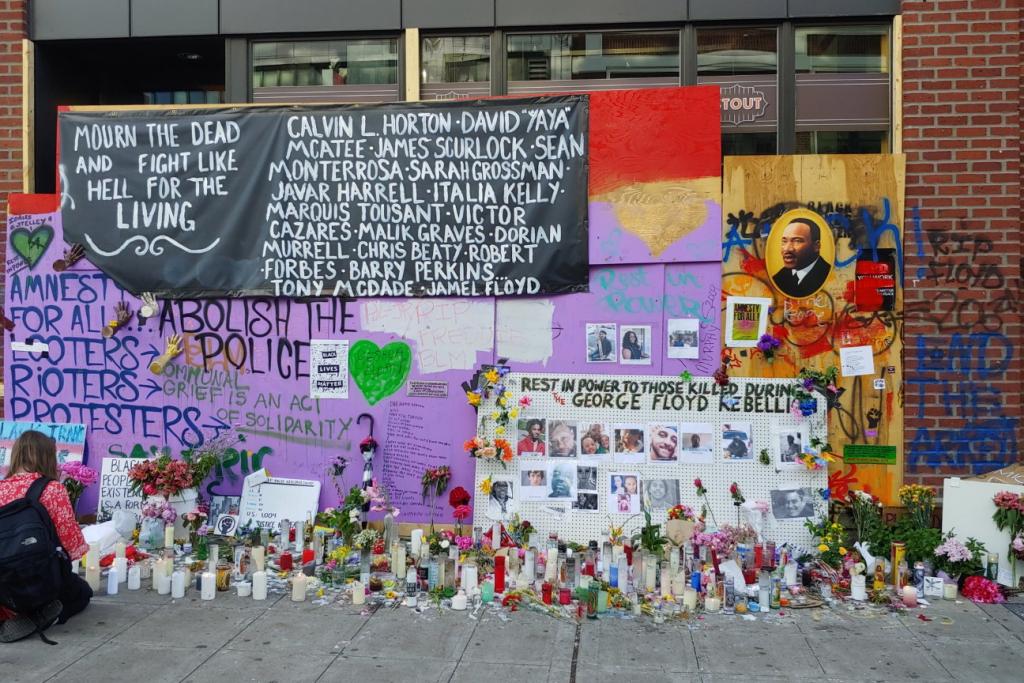
The Christian church has come a long way on matters related to human sexuality. Of particular note has been the headway made in affirming the LGBTQ community in many mainline, progressive, and liberal streams of the church. That’s not to say we don’t still have a long way to go, but I’m proud of the strides we’ve made. And I’m proud of the fact that we’re having these conversations, working through issues that present themselves, and figuring out what it means to be queer and Christian.
However, the same can’t yet be said for another relational orientation: polyamory.
Polyamory, defined in a recent, wide-ranging survey as “consensually non-monogamous relationships [where] there is an open agreement that one, both, or all individuals involved in a romantic relationship may also have other sexual and/or romantic partners,” has been on the rise in global culture at large—and even within the church. In the interest of transparency, I should also disclose the fact that my wife and I are polyamorous ourselves and recently decided to open our marriage as such.
Some conversations certainly have been happening, but for the most part, they’ve been taking place well off the radar of the church at large. Sure, there are plenty of whispers and rumors. And there are the knee-jerk reactions from conservative watchdogs, warning about the “slippery slope” from LGBTQ-affirmation to polyamory (as if that would be an obvious problem). And a few individual affirming voices have been speaking over the past few years. (Thank you.)
But quietly, there are the thousands of faithful Christians who practice polyamory—living lives of giftedness, dignity, and worth, but receiving next-to-no spiritual support.
This raises an important question. Where are the serious public conversations about this? Why aren’t most LGBTQ-affirming churches being equally vocal about their affirmation of polyamorous people? Or, if they affirm same-sex relationships but not polyamorous ones, then why aren’t they at least being clear about this and explaining their reasons for it?
[Update: Some of my words here were not as clear as they should have been. See my apology and clarification.]
There are hundreds if not thousands of books out there about same-sex issues from a Christian perspective. But I haven’t been able to find a single book on polyamory in the church. (Please point it out to me if you know of one!)
The recent so-called “Nashville Statement” has resulted in a number of beautifully affirming counter-creeds (including one from actual Nashville residents), but only one of the major responses I’ve seen so far (other than my own) has addressed the fact that polyamory was included in the original attack:
WE DENY that God has designed marriage to be a homosexual, polygamous, or polyamorous relationship.
Why the silence from so many friends and potential allies? (And props to Metropolitan Community Churches for being the exception.)
Here are five reasons why the church needs to start talking about polyamory:
- As I’ve mentioned, a number of faithful polyamorous Christians are already present, and they often feel closeted from their faith communities by default. If the church is to be the church for all people, then we need to talk through what it means to be poly and Christian. We can’t just leave this kind of relationship on the sidelines.
- Additionally, there are many more faithful Christians who either feel that they are poly or feel drawn to see if they are, but they’re not sure whether it is compatible with their faith.
- Related to the above, there are a number of people who have left the church because they assume—rightly or wrongly—that their polyamorous relationships would not be welcome there.
- And there are plenty of polyamorous non-Christians who would be interested in learning more about Christian faith, community, and practice, were it not for the same assumption that they would be unwelcome.
- Finally, polyamory is here, and it is growing—regardless of what we may personally think about it. We need to learn what the spectrum of non-monogamous relationships look like and how they work, if for no other reason than to better understand and relate to our polyamorous neighbors.
So, over the next few posts, I’m going to try to jump-start the conversation. I don’t intend to give any kind of definitive word about polyamory and Christianity, but my hope is that others from the broader church—particularly those who are already LGBTQ affirming—will respond with thoughts of their own. As for the more conservative branches of the church, I’m fairly certain I already know how they will respond, and I’m not overly concerned about that. But who knows—maybe they’ll surprise me?
For the next post, we’ll start the conversation by clearing up some common misconceptions about polyamory. In the meantime, if you’re interested in learning more about polyamory from a respected source, take a look at MoreThanTwo.com.
Posts on polyamory
- It’s Time for the Church to Talk About Polyamory
- Conflating Polyamory, the LGBTQ Community, and Orientation
- What Polyamory Is Not
- Christian Sexual Ethics and Polyamory
- Southern Baptist Preacher Affirms Polyamory (Interview with Rev. Dr. Jeff Hood)
- Is God Polyamorous?
- 5 Reasons for Writing about Polyamorous Families (Guest Post by Mark Kille)
- Polyamory and the Kingdom of God (by Christian Chiakulas on Radical Christian Millennial)
- What Are Polyamorous Christians to Make of Karl Barth? (Guest Post)
- Polygamy and the Problem of Patriarchy
- Forthcoming…
















